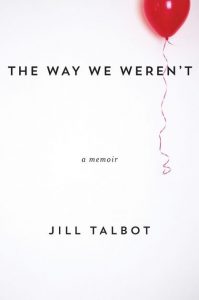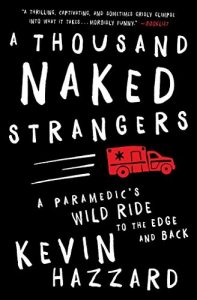
2014
Poetry
$18; 144 pages
Subito Press
ISBN: 978-0990661214
Something Like That: Amaranth Borsuk’s and Andy Fitch’s As We Know
by Bryce Bullins
Erasures, when done exceptionally, can create a landscape wholly unique. Paradoxically, the willful redaction of text can enhance, if not make better, a narrative. For example, Yedda Morrison’s Darkness erases, or more accurately whites-out, large portions of the first chapter of Joseph Conrad’s Heart of Darkness. In doing so, Morrison doesn’t so much rewrite Conrad’s narrative but rather enhances it by bringing the natural world to the forefront. Similarly, through this same process of careful and willful redaction, Amaranth Borsuk and Andy Fitch have made something quite unique with their work As We Know.
Written in diary entries from April 30th to July 1st, As We Know seeks to abolish identity and embrace banality. Days pass with vignettes of stoops and flowers in the park, internalization of anxieties and ponderousness, and musings on the nature of umbrellas. Most striking is the lack of gender identifiers of the writer and no hints to let us peel away whatever may be there. It’s a brilliant and bold move. By removing gender identifiers, arguably the identity of a narrator is dismantled, at which point we are able to become more invested in the language on the page as we now have a blank space with which to connect with work in myriad ways. In essence, our own biases, whatever they may be, are dismantled via the absence of identity, leaving us with an unfiltered dialogue with the text itself.
As We Know has a meta-sensibility to its willful destruction of identity. Within the first four pages a quote from Georges Bataille appears in which we are given firm notice that As We Know is taking on the job of the formless and is attempting to “(1) [debase] objects by stripping them of pretensions—in the case of words, pretensions to meaning—and (2) [attack] the very condition on which meaning depends, the structural opposition between definite terms.” We are immediately told what’s at stake by taking away all that is usually at stake. This is to say nothing of the underlying conceptual aspects of As We Know. To quote from the artist’s statement, “As We Know attempts to intervene into the gendered history of editorial intervention as it has played out in the famous cases of figures such as Dorothy Wordsworth and Emily Dickinson.” By not concerning itself with identity from the outset, the tension that generally exists between ownership and authorship dissipates. Though it is clear that there is still some consternation in the text as at times: entries often flow together seamlessly, almost as if one day bleeds into the next with little to separate the preceding day(s), and yet there are times when there are clearly conflicted voices, one of which is giving what is tantamount to stage directions: “(figure out how to organize those better)” and “(figure out where to make these past or present tense)”. This struggle never quite manifests into open aggression but instead subtly stews beneath the work, begging questions as we move forward in time. There is no resolution by the end, only hints at a partial and tenuous closure when we reach the acknowledgements and are given a simple dedication: “this book is for Emily and Dorothy.”
As We Know deftly uses the art of strike-through to cultivate its attentiveness to banality and temporality. The grounding for this banality comes from a quote from Roland Barthes, which serves as an epigraph (as presented in the format of As We Know):
; whatever he writes
, it will always be a vested discourse, in which the body
will make its appearance (banality is discourse without body).
In other words, what he writes proceeds from a corrected banality.
As We Know isn’t merely “corrected banality” but perfected banality: each entry is clearly marked with a day, sections marked with timestamps, and the erased structure of the work makes it feel as though these were a series of never-ending connections due in large part to the repetitious banality that makes up our own days. As mentioned, days bleed together as simply as turning the page, so much so to that when we were cognizant of being on May 5th it is suddenly May 20th. Strikingly, this preponderance of time dilation is one of As We Know‘s greatest strengths.
When taken out of the context of the work at large, the entries still work exceedingly well as standalone pieces. Take for example the excerpt the Sierra Nevada Review published in volume 25 from May 22:

No knowledge of the preceding days is necessary to feel the weight of this entry, allowing it to work and flex its integrity entirely on its own as a self-contained micro narrative. Placed into the context of the full body of work, its weight is certainly enhanced, but because of the way in which As We Know is constructed, it lends itself naturally to vignettes rather than predicating itself on needing the entire body to function. Apropos, considering the dynamics of authorship and voice within.
When not tarrying with bringing the past to the present and grounding the timeline of As We Know somewhere within the confines of an abstract present, the struck-through text, by and large, tends to remove what would otherwise be superfluous details and descriptions. It is ironic then, that these superfluous details and descriptions are what enhance the banality of our lives. More correctly, these superfluous things merely give us the illusion of enhancement. What is banal is always banal, no matter how one dresses it.
As We Know is an experiment in language and presentation devoid of all frivolity and pretension as established by Bataille. It is direct, bare, and nearly holistic in its austerity. Its complexities are vast and often times lend to the meta-narrative of our own lives in that As We Know, intentionally or otherwise, winds up confronting us with our own subjectivity to both content and form.









